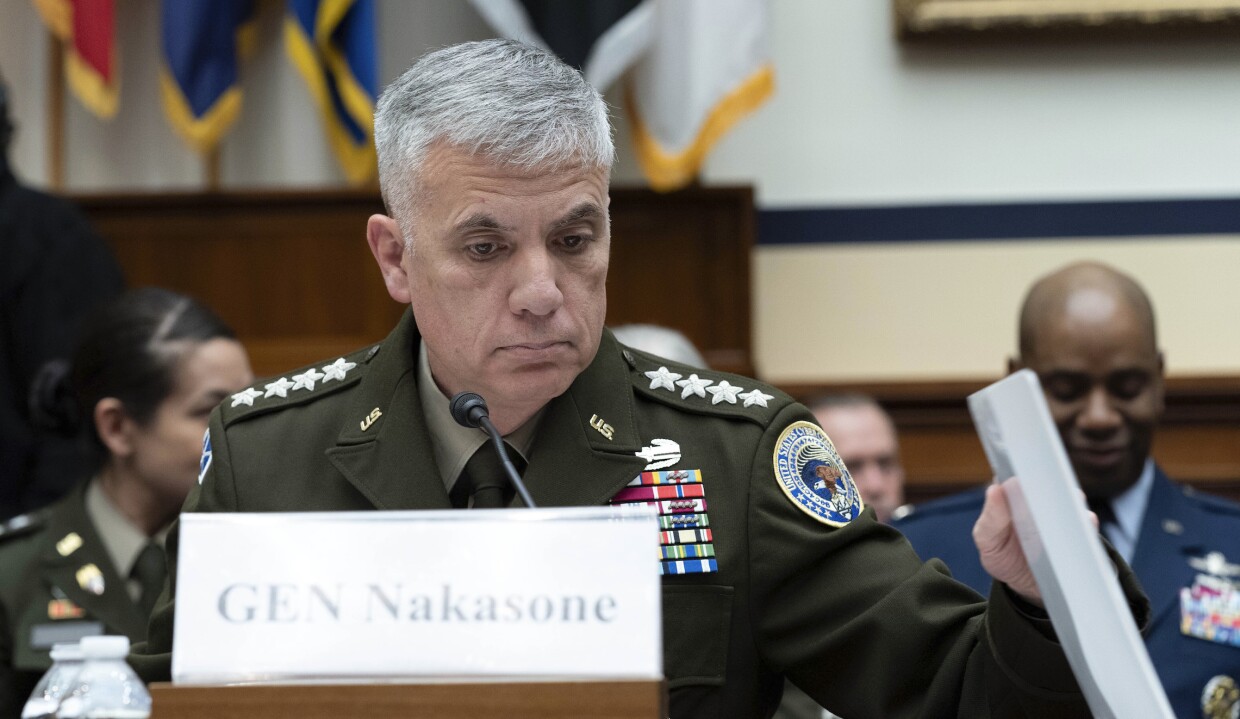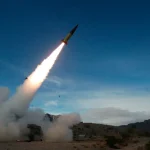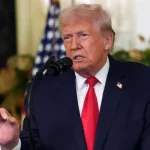
U.S. military forces have a “tenuous” advantage over China in the realm of artificial intelligence that would fray if Silicon Valley halts development of the systems, according to the Pentagon’s top cyber warfare officer.
“Artificial intelligence machine-learning is something that is resonant today and is something that our adversaries are going to continue to look to exploit,” Gen. Paul Nakasone
, who commands U.S. Cyber Command and leads the National Security Agency, told House lawmakers.
WELCOME TO THE INFORMATION HELLSCAPE
Artificial intelligence has emerged as a high priority for political leaders and national security officials around the world over the last several years. With dramatic technological advances on display amid an intensifying rivalry between China, a debate is emerging in Silicon Valley about the relationship between “AI systems with human-competitive intelligence” and national security.
Artificial intelligence has emerged as a high priority for political leaders and national security officials around the world in the context of the intensifying rivalry between the United States and China. Yet a disagreement has emerged in Silicon Valley, where the launch of so-called ChatGPT chatbots that engage with users “in a conversational way” has stoked a debate about the risks presented by these systems.
“AI systems with human-competitive intelligence can pose profound risks to society and humanity, as shown by extensive research and acknowledged by top AI labs,” the Future of Life Institute argued in an open letter published this week. “Therefore, we call on all AI labs to immediately pause for at least 6 months the training of AI systems more powerful than GPT-4. This pause should be public and verifiable, and include all key actors. If such a pause cannot be enacted quickly, governments should step in and institute a moratorium.”

U.S. Cyber Command Commander Gen. Paul Nakasone testifies before the House Armed Services Subcommittee hearing on cyberspace operations, on Capitol Hill in Washington, Thursday, March 30, 2023. (AP Photo/Jose Luis Magana)
Jose Luis Magana/AP
That proposal has the support of Apple co-founder Steve Wozniak, SpaceX CEO Elon Musk
, and other leading tech innovators. Yet it strikes some prominent figures at the intersection of technology and national security as little more than wish-casting.
“All this would do is ensure that Europe and the United States lose 20 years of competition against China,” tech entrepreneur Nicolas Chaillan, a former Air Force and Space Force chief software officer, wrote in response to the open letter. “China would claim to stop and they wouldn’t (like always) and we would lose the war.”
That forecast found an echo during Nakasone’s appearance before a House Armed Services subcommittee. “It seems to me if you’ve got some of the big tech influencers in our country, saying, ‘whoa, whoa, pause, don’t expand commercial vectors in AI,’ that could be counterproductive,” Rep. Matt Gaetz (R-FL) said during an exchange with Nakasone.
The general trod more lightly at the prospect of a direct disagreement with the tech leaders during the House Armed Services subcommittee hearing.
“My focus right now is being able to develop the talent, the techniques, and the tradecraft as we look forward to utilizing this, you know, this important advantage our nation has,” Nakasone said. “Right now, as we take a look at the AI and machine-learning domain, what we need to be focused on is, how do we look at it in a way that we can use it responsibly, not only for our national defense, but also for our economy.”
Musk and the other open letter signatories maintained that AI researchers need “a set of shared safety protocols” to govern the research.
“These protocols should ensure that systems adhering to them are safe beyond a reasonable doubt,” they wrote. “This does not mean a pause on AI development in general, merely a stepping back from the dangerous race to ever-larger unpredictable black-box models with emergent capabilities. AI research and development should be refocused on making today’s powerful, state-of-the-art systems more accurate, safe, interpretable, transparent, robust, aligned, trustworthy, and loyal.”
Chaillan, who founded a company focused on “introducing the cutting-edge AI assistant designed specifically for government teams,” countered that such protocols wouldn’t bind Chinese President Xi Jinping.
CLICK HERE TO READ MORE FROM THE WASHINGTON EXAMINER
“You don’t control innovation,” he wrote on LinkedIn. “Particularly when it’s available worldwide. It’s totally ludicrous. President Xi is laughing again.”
Nakasone said that “the United States is ahead” in the artificial intelligence arena, for now. “This is a tenuous place that we’re at as well,” said Nakasone. “This is being developed by a series of entrepreneurs and those that are working it. But, we should not take this for granted, that this is going to be the way of [it] in the future. And so we need to continue to invest in it, and work it, and continue to utilize it.”






